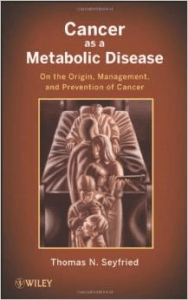Can A Ketogenic Diet Cure Cancer?
November 20, 2014 | Author: Susan Silberstein PhD
Over the years, there have been many diets purported to provide the cancer solution: The Grape Cure Diet, the Gerson Diet, the Hallelujah Diet, the Macrobiotic Diet, the Paleolithic Diet, the Hippocrates Diet, etc. If you search “diet for cancer,” you will find nearly nine million search results, many contradictory. So what diet should you choose? The latest cancer diet to come along is the ketogenic diet. Can a ketogenic diet really cure cancer?
Actually, dietary improvement can be extremely valuable for fighting cancer. I teach and write about that all the time. But I’m not into fad diets – especially for cancer patients. The best diet is the one that makes sense to you, the one you can stick with, the one you are willing to do, and the one that is personalized for you. Trying to follow a really restrictive diet may not only be highly stressful or impossible – it may not even work. And in the case of the ketogenic diet, it may even be dangerous in the long run.
What is a ketogenic diet?
A ketogenic diet is a very low carbohydrate, high fat diet that contains moderate amounts of protein. It was made popular in 2012, when science researcher Thomas Seyfried, PhD, published his acclaimed treatise, Cancer as a Metabolic Disease, in which he claimed that a high-fat, zero carbohydrate ketogenic diet represents the solution to cancer.
Dr. Seyfried is well credentialed. He has taught and conducted research in biochemistry and cancer for more than twenty-five years at Yale University and Boston College and has published more than 150 scientific articles and book chapters.
Seyfried’s latest book is based in part upon the concepts of Dr. Otto Warburg, the great German scientist who won the Nobel Prize in Medicine and Physiology in 1931 for his work on cellular oxidation and energy production. Warburg’s research showed that cancer cells are primary sugar metabolizers.
There is no question that sugar feeds cancer. Avoiding a lot of carbohydrates helps to keep blood sugar and insulin levels down, and the link between elevated glucose and insulin levels and cancer incidence is well accepted within the medical community. High insulin levels and insulin resistance are associated with risk for cancers of the pancreas, liver, colon, breast, and cervix, among others. Furthermore, studies have shown that people with the highest fasting serum glucose levels suffer higher death rates from cancer when compared with those with the lowest levels. In fact, research shows that high blood glucose (over 87mg per deciliter) correlates with a worse prognosis for breast, prostate and lung cancers as well as lymphoma.
The primary purpose of dietary carbohydrates is for fuel. Typically, the body converts carbohydrates into glucose, the major metabolic fuel for most cells and the sole fuel for brain tissue. In the absence of carbohydrates, the body switches to burning fats for energy by converting them into ketones. Not surprisingly, ketogenic diets were originally developed to manage epileptic seizures in children and showed some effectiveness in managing brain cancers.
On the surface, a ketogenic diet appears to make sense. Since cancer cells primarily use glucose for fuel, one could theoretically starve cancer cells by depriving them of glucose, while continuing to provide healthy cells with ketones for energy.
Dr. Seyfried believes that cancer does not develop from genetic alterations but as a result of changes in fundamental cell physiology, metabolism and energy production. Sounds good. I have long believed that cancer represents a breakdown in body metabolism. I am all for that concept, but not for Seyfried’s conclusion that a low-carb, high-fat ketogenic diet “can replace chemotherapy and radiation for even the deadliest of cancers.” Frankly, it’s not hard to beat the poor track record of chemo and radiation for long-term survival, but this diet is by far not the best alternative.
In an interview, Seyfried stated, “The reason why the ketogenic diet is not being prescribed to treat cancer is purely economical…. Cancer is big business. There are more people making a living off cancer than there are dying of it.” I agree. Cancer is big business. But that does not prove that the ketogenic diet is a cancer-protective diet. In my next blog, I will discuss several serious concerns about the ketogenic diet. Stay tuned.
Join the conversation on the “Ask Holistic Cancer Coach Facebook Group.”
References:
[1] Seyfried, Thomas. Cancer as a Metabolic Disease: On the Origins, Management and Prevention of Cancer. John Wiley & Sons, 2012.
[2] http://www.examiner.com/article/low-carb-ketogenic-diet-beats-chemo-for-most-cancers-says-dr-thomas-seyfried
